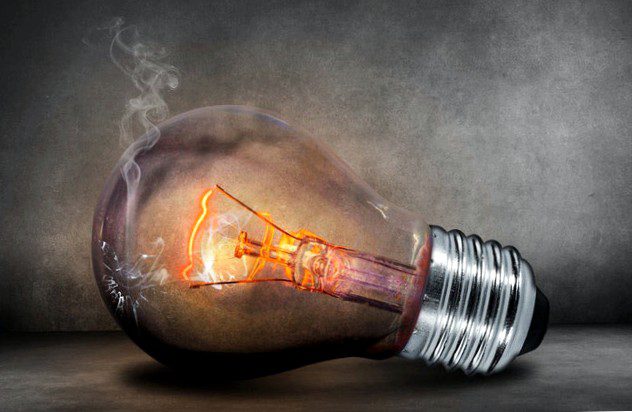Money is often tight for students, and savings often have to be made on many fronts. A few simple tips can save you a lot of money on electricity. Saving electricity has a positive effect on the environment, but also on your wallet. Those who pay less for their electricity have more money for the finer things in life. Here we tell you how you can easily save electricity.

1. energy saving lamps& LED
One of the most important energy consumers are lamps. The normal light bulb is no more, instead came the energy-saving bulbs, which consume much less electricity. But there are many other light sources, which still have a high energy consumption, for example halogen lamps.
If you have such light bulbs in use, you should replace them with energy saving bulbs. Just about all lamps can be fitted with energy-saving bulbs without any problems. Dimmable lamps are an exception. Here you must make sure that the energy-saving lamp itself is also dimmable. Even more economical you drive with LED lamps.
An example: a lamp with three halogen spotlights consumes a good 60 watts. For little money, there are LED lights that use only 3 watts each. By simply swapping bulbs you'll save 51 watts of power consumption, certainly not a bad value. Converted, this is a saving of 85 percent. And of course, you should always turn off the lights when you leave the room.
2. Laptop instead of PC
Computers can be real power hogs. If you like to play current games, you need a powerful computer that has a corresponding power demand. But you don't need all that power when you're studying for university or writing term papers. There are many courses of study where you also need a laptop at the university (suitable models with corresponding student offers can be found z.B. at Sparcampus).
Why not take this laptop to study. All common PC monitors have multiple inputs. You can simply move the keyboard aside and connect the laptop to your monitor, if the screen of the laptop is too small or working on it is too unergonomic for you. You can also use your mouse and keyboard on your laptop. If you don't like the hassle of plugging and unplugging, just use USB extension cables or a USB hub that you put on your desk. Then you don't always have to crawl behind the computer to plug it in.

3. Energy efficient appliances
Large electrical appliances such as refrigerators, stoves, televisions and washing machines are also among the biggest power guzzlers. A lot has happened on the technical side in the last few years. If you took your parents' old refrigerator to your student apartment, check how much energy it uses. New appliances consume significantly less electricity than those that may already have ten years on the hump.
Now such large electrical appliances are not necessarily cheap. You probably can't buy a new refrigerator and a new washing machine. You should try to put some money aside regularly so you can buy a new one if one ever goes belly up. Repairs often cost as much as a cheap new device. If you need to replace an appliance, simply choose one with a particularly good energy efficiency.
4. Cooking together
If you live in a shared apartment, you can save a lot of electricity by cooking together. The electricity costs grow to infinity if each resident uses the stove only for himself and cooking together is also fun and promotes the community.
You don't necessarily have to live in a shared apartment to save electricity this way. You can also get together with a few friends and meet regularly to cook together. So you can leave your stove off several times a week and if you cook together, the consumption is not higher than if you cook for yourself.

5. Switch off unused appliances
You are surely aware that electrical appliances that you are not using should be switched off. But there is a difference between "off" and "really off". Although the standby mode usually consumes very little electricity, it can be worthwhile to really turn off an appliance at the switch or to unplug it.
Let's say you have a microwave, a TV with a set-top box, a music system and a DVD player. That's already five devices that are probably always on standby and consume electricity. Even if it is not much, you still have to pay for it. If you don't need the clock on the microwave, just unplug it. The DVD player is certainly not needed around the clock. If it is too much effort to plug in and unplug each time, you can simply use a multiple socket with a switch.
As an intermediate variant you can use a so called master-slave-socket. In this case one device is the main device, for example the TV set. As soon as the TV is switched on and consumes electricity, the other devices connected to the socket are also supplied with power.
6. Programmable thermostats
A lot of energy is also used for heating. Usually you don't heat with electricity, but gas is an energy source that is not available for free. Depending on the age of your heating you can install programmable thermostats. You change the thermostats on your radiators and program when the heating should be how warm.
This has the advantage that you can no longer forget to turn off the heating. If you forget to do this in the morning, it will heat up all day and waste energy. Use a programmable thermostat for targeted heating.
7. Compare and change electricity suppliers
The last tip is not one for electricity, but for saving money. If you follow all the tips, you can hardly reduce your electricity consumption and save a lot of money compared to before. You can save even more money by choosing the best electricity provider for you. Partly there are enormous differences in electricity costs.

It is particularly expensive with the basic supplier. If you don't have a special rate, you're usually paying way too much for your electricity. With an electricity provider comparison z.B. over at the Finanzschotten you can easily find out if there is still a cheaper provider available. You only need to know your annual consumption. If you do not know it, because you have just moved into your own apartment, you can also estimate it or use it. get an estimate. You don't need to look for particularly cheap electricity rates for students, as these are absolutely exceptional cases and do not differ greatly from cheap normal rates.
Once you've chosen a provider, it's easy to apply for a switch online. Don't worry, the electricity provider will do everything for you and if something goes wrong, you won't have to go without electricity until the matter is resolved. You will continue to be supplied with electricity by the basic supplier. If the problem is caused by your new provider, you will usually be reimbursed for the difference between your desired tariff and that of the basic provider.